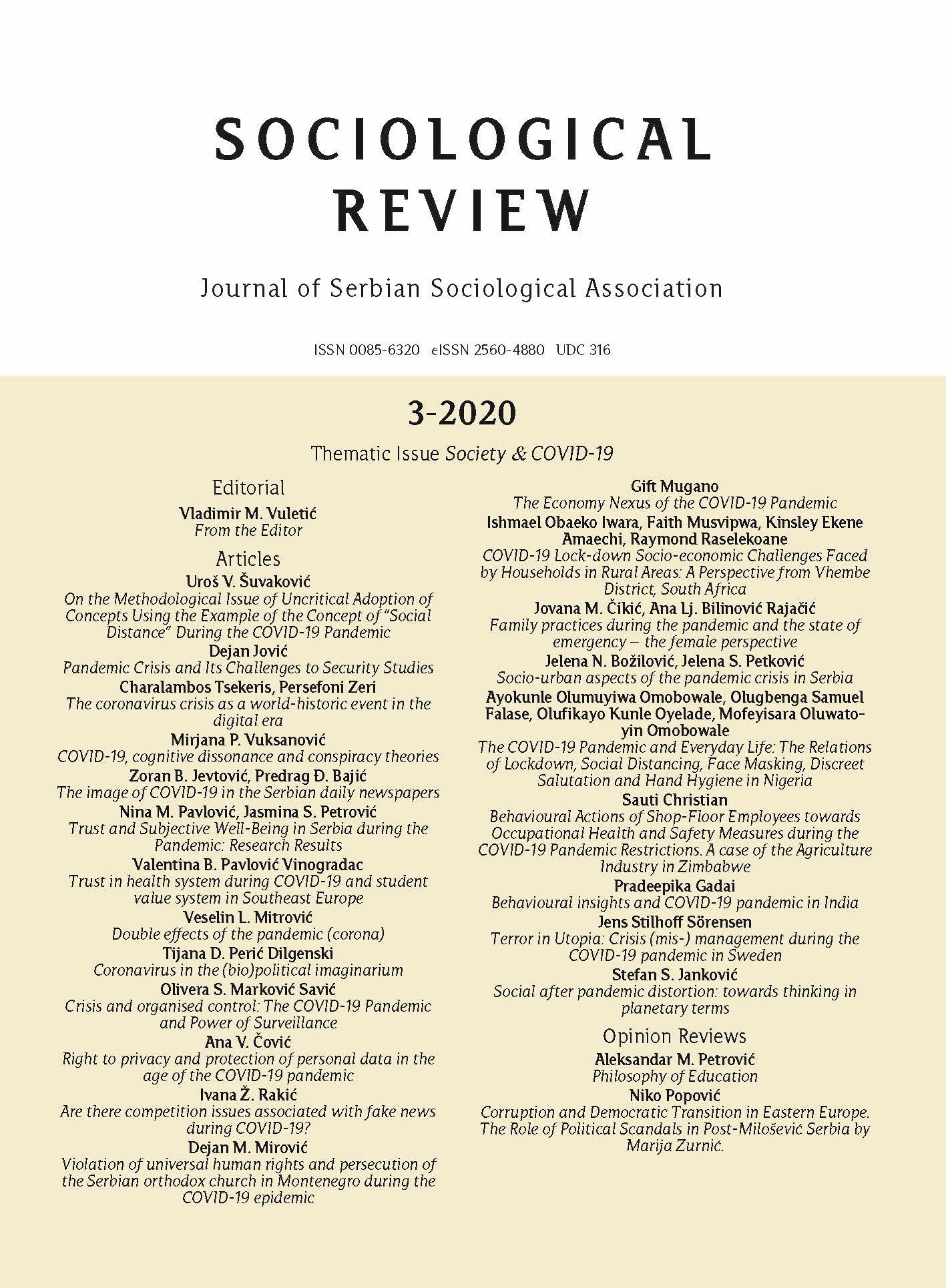Trust and Subjective Well-Being in Serbia during the Pandemic: Research Results
Trust and Subjective Well-Being in Serbia during the Pandemic: Research Results
Author(s): Nina M. Pavlović, Jasmina S. PetrovićSubject(s): Social Sciences, Sociology, Social psychology and group interaction, Social development, Health and medicine and law, Globalization
Published by: Српско социолошко друштво
Keywords: trust;subjective well-being;control;solidarity;pandemic
Summary/Abstract: The context of a pandemic caused by an infectious agent and the resulting health risk to a large number of people is a new type of risk contemporary humans are not quite familiar with. In addition to forcing citizens to rely on the effects of controlled medical and epidemiological measures, this kind of situation steers citizens towards cooperation and solidarity as well as towards personal capabilities of functioning during a crisis and it requires a certain degree of trust, not only in the institutions but also in other persons. The aim of this paper is to learn to what degree Serbian citizens trust others during the COVID-19 pandemic and whether this level of generalized trust differs among different sociodemographic groups, or more precisely, which groups were affected the most by the absence of generalized trust. The paper also analyzes a set of variables which are either a part of the concept of subjective well-being (feeling of happiness and life satisfaction) or are closely connected to it (the feeling of control over life, subjective health assessment, and assessments of solidarity and honesty of others). The analyzed data were obtained from a sample of 602 adult Serbian citizens who participated in an online survey in May 2020 by completing a questionnaire they received via e-mail and social networks from multiple access points. These data are compared to the newest available data on the given indicators in Serbia before the pandemic, collected within the European Values Study (EVS) in 2017 and the European Social Survey (ESS) in 2018. The results indicate a significant decrease in happiness and continuously low levels of the feeling of control over life and life satisfaction, but also an increase in the assessed honesty and solidarity of others. These findings are in accordance with the results of the previous studies, which revealed different dominant aspects in the analyzed concepts, leading to their different flexibility and (non)resilience to the changes in society.
Journal: Социолошки преглед
- Issue Year: 54/2020
- Issue No: 3
- Page Range: 560 - 582
- Page Count: 23
- Language: English, Serbian

